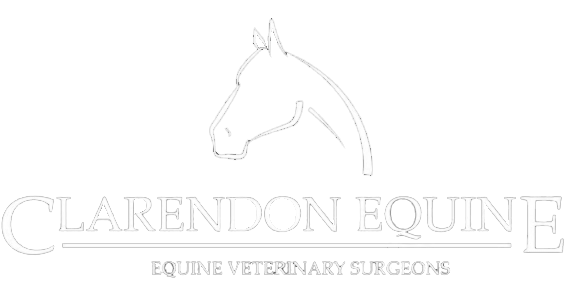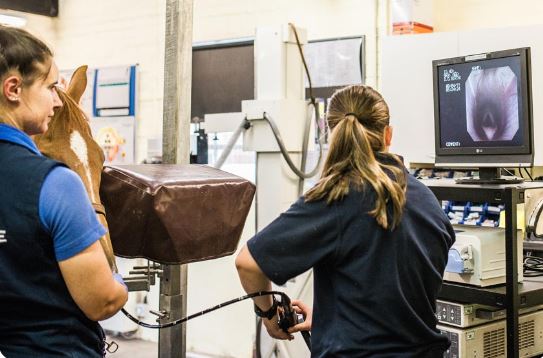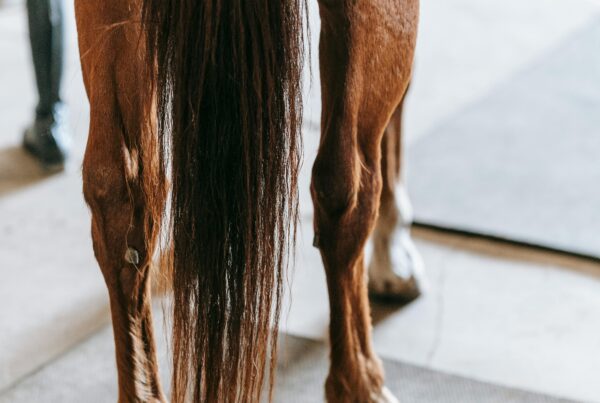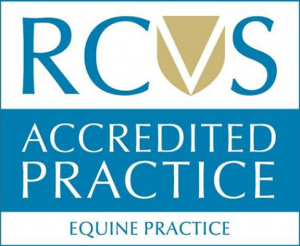A horse is beautifully designed by nature to do two things – run fast and eat grass. However, as we keep our horses, we tend to focus largely on the former (running, or jumping, or otherwise exerting themselves), often to the detriment of their grass-eating heritage. One of the side effects of this seems to be a significant increase in stomach problems – and this month we’re really focussing in on making sure your horses’ gastric health is as good as it can be!
What do we mean by “poor gastric health”?
Horses have evolved as trickle-feeders, designed to constantly graze on grass (or, arguably, standing hay, as on the loess steppes of the Ice Age). This constant grazing means that the stomach is constantly receiving a little bit of food, and in reflex, secretes a little bit of acid, necessary to digest it. However, that acid is buffered, or neutralised, by saliva, preventing excessive acid production.
However, in a more intensive exercise or training regime, we feed a higher percentage of the horse’s calories requirements as concentrates or even straights – meaning there’s a sudden surge of “rich” food to the stomach, triggering an acid surge. The horse is not, however, constantly nibbling grass or munching hay, and so that usual buffering effect doesn’t occur. The result is a build-up of acid in the stomach – acid that can get concentrated enough to damage the stomach wall, causing an ulcer. This is commonly referred to as Equine Gastric Ulcer Syndrome, or EGUS.
ESGD
Standing for Equine Squamous Gastric Disease, this is the “classic” form of EGUS. With the conventional wisdom being to exercise a horse only on an empty stomach, that concentrated acid also ends up splashing around in an otherwise empty stomach, impacting the upper parts of the stomach wall – the squamous region – which is less well adapted to resist it. And this is indeed the most common type in racehorses and other performance horses in training.
However, more recent research suggests that your happy hacker or low-level sports horse may not be safe either…
EGGD
Equine Glandular Gastric Disease is a less well understood condition and seems to occur because the natural defences against acid are less effective, for some reason. We don’t really know why it happens, although reduced turnout and, interestingly, reduced social company, seem to increase the risk. This form is almost as common in sports and leisure horses as racehorses. So even leisure horses are potentially at risk!
What does poor gastric health look like?
The “classical” signs of poor gastric health include:
- Inappetence
- Poor body condition – e.g. being a poor-doer
- Weight Loss
- Poor coat condition
- Behavioural changes – especially crib biting (where some evidence suggests crib-biting may be an attempt to trigger a salivary flow to regulate stomach acidity!)
- Poor performance – although there are many other factors, gastric health is always a good rule-out when investigating unexplained poor performance
- Recurrent, low grade, “grumbling” colic – especially after meals
Of course, these are mostly pretty non-specific signs: many horses will show some or all of these and not have any gastric issues.
How can we confirm it?
The only way to assess a horse’s gastric health is by actually taking a look at the stomach – using an extra-long 3m Gastroscope. Here at Clarendon Equine, we have the equipment to take a good look around, and the expert staff to properly interpret what they’re seeing! Fortunately, gastroscopy is really well tolerated by most horses, with just light sedation if needed.
Can’t you tell they’ve got ulcers just from looking at the horse?
Sadly not – all of the “classic signs” can be caused by other conditions, and even a horse presenting with all of them, might well have something else going on!
What’s the treatment or prevention?
There are a range of prescription medications which are very effective at treating and then preventing gastric ulcers. However, it is illegal to purchase or use these without a veterinary prescription – and why waste the money? Use them if you need them – when your vet has determined that there really is a problem.
Won’t supplements be more natural and safer?
Unfortunately, while some antacid-based supplements can alleviate the symptoms, the effects don’t last long – usually only a couple of hours. That isn’t enough time to allow the stomach wall to heal. While probiotics may be useful in the long term, they are unlikely to heal a stomach ulcer.
What should I do?
If you’ve got any concerns – or even questions – about your horse’s gastric health, get in touch! One of our vets will be in touch to arrange a check-up and a full gastric health assessment – and we’ll get them sorted out and back on track!









